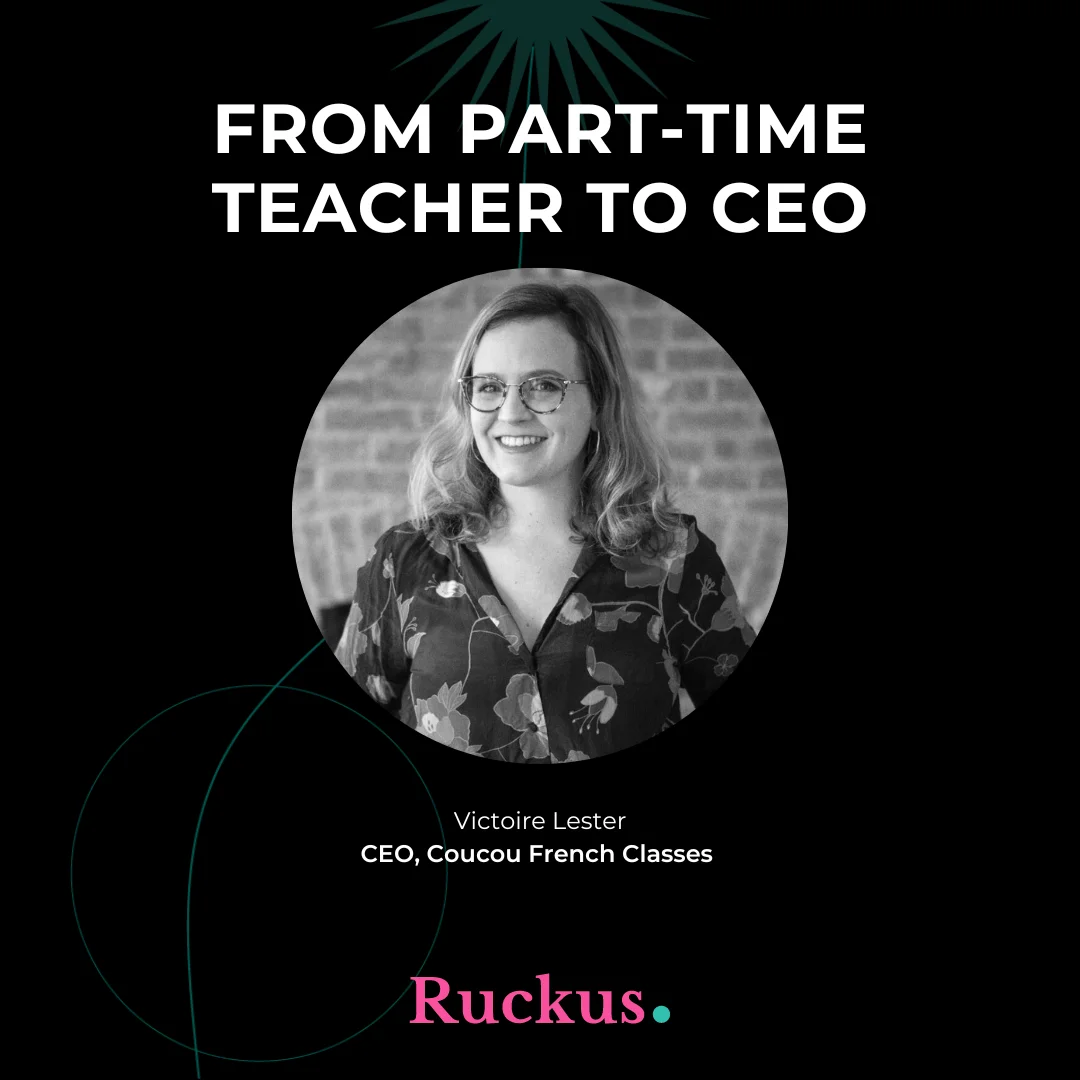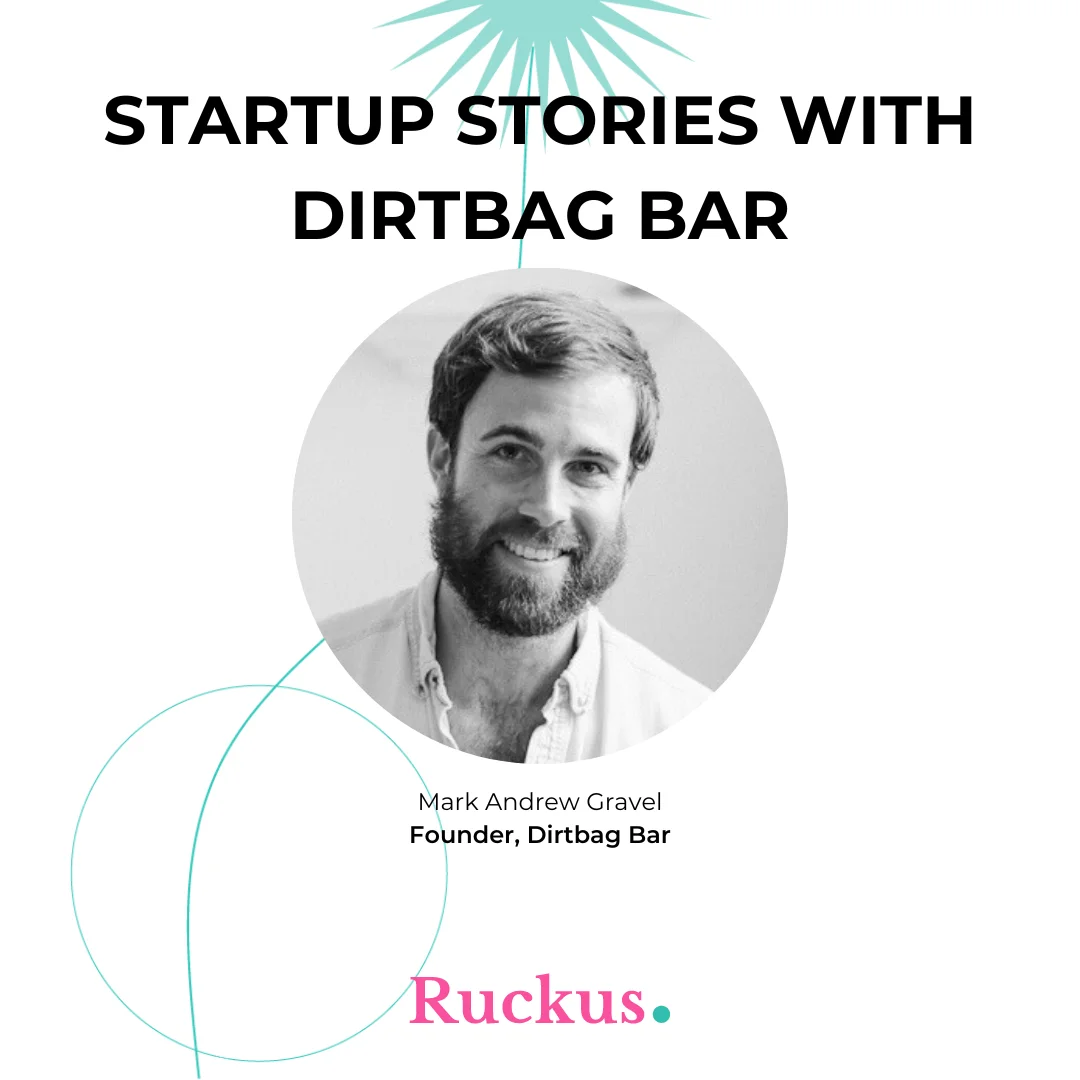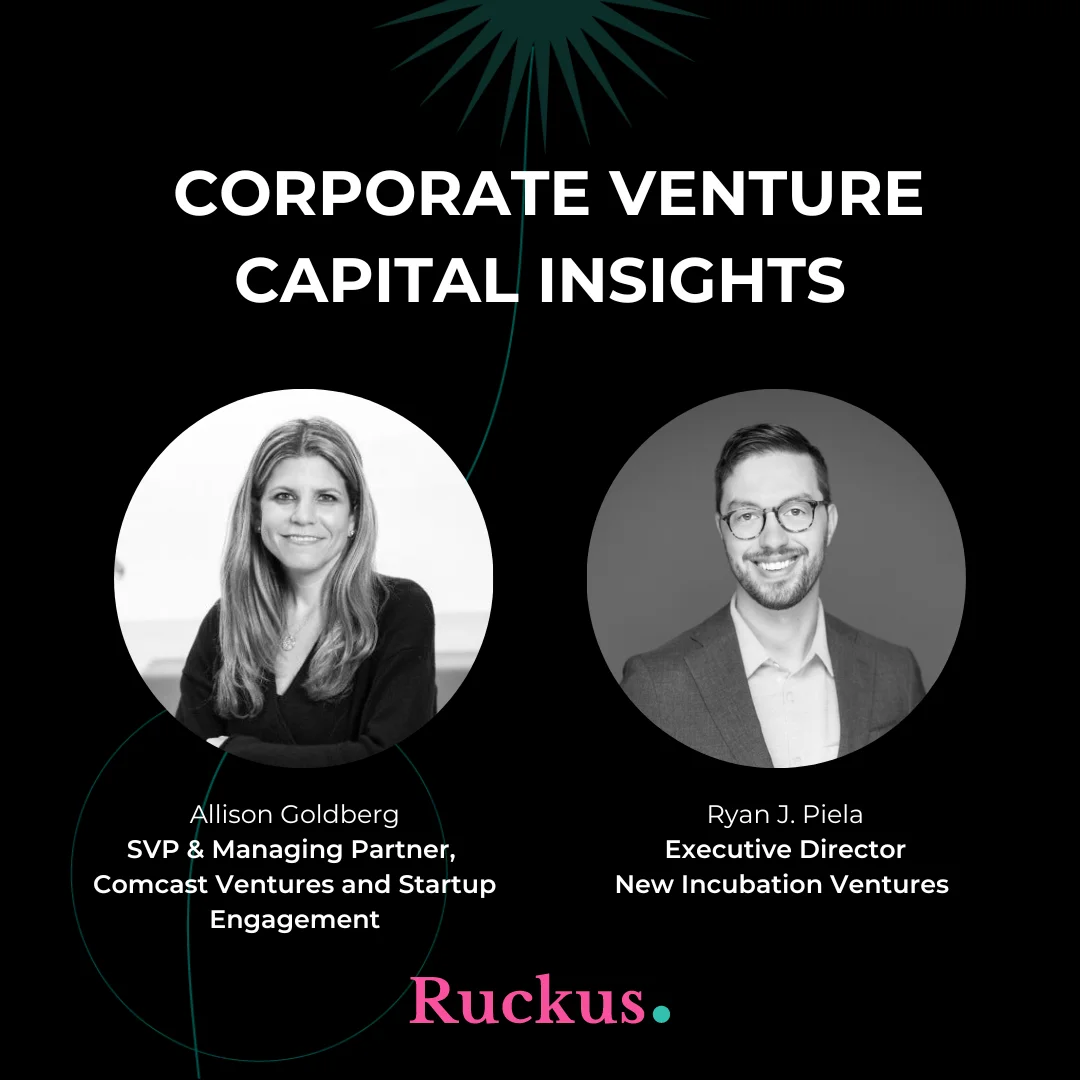We sat down with Linda Vermaat, Director of Innofest, a team dedicated to help impact driven startups test their prototypes at festivals. Due to COVID and festivals coming to a halt they’ve developed online methods to help startups kickstart their growth. Linda shares her vision, best practices learned along her journey and powerful advice.
About Linda:
Linda Vermaat (38) lives in Amsterdam, together with Erik and their daughter Isa. She has a curious mind, is quite talkative and loves to eat with her hands.
She is inspired by people who go above and beyond to challenge the status quo. Therefore she founded the Slow Food Youth Network, Professional Rebel & the international documentary Fix the World & Make Money; as places where these people can come together and propel each other forward.
These experiences have made Linda the perfect fit as the new director of Innofest, a function she has proudly embraced from September 2019 onwards. As a director Linda closes partnerships, spots (new) business opportunities and leads the Innofest troops and the Innofest brand.
Finally, Linda is a well known speaker on sustainability (TEDX Amsterdam), a jury member of diverse startup competitions (Enterprijs) and host of sustainable innovation events (ADE Green and ASN Bank Wereldprijs). And on the side she is a pitch coach for impact projects and startups.
Helpful Links:
- Learn more about Innofest here.
- Contact Linda at: linda@inoffest.co
- Documentary Fix the World and Make Money: https://www.youtube.com/channel/UCzyw7IBkKmNkC7_-p7SfFVw
- White paper: https://innofest.co/whitepaper-aanvragen/
Highlights
- 0:07 – Innofest gets introduced. Linda tells us about the documentary she travelled the world around for : Fix the World and Make Money.
- 2:11 – Linda shares her experience co-creating Professional Rebel, how she felt inclined to impact driven startups and how that led her to her position in Innofest.
- 3:49 – Linda defines an impact driven startup, and what these startups business model should include.
- 4:44 – What is crucial for an impact driven startup to succeed is discussed
- 7:45 – Linda shares how Innofest can help impact driven startups kickstart their growth
- 8:44 – Networking is also something that Innofest helps provide at these human lab experiences.
- 9:54 – Linda tells us what makes the ideal testing environment
- 11:40 – Linda shares on the selection method of the startups they work with
- 12:58 – Linda tells us how online testing was a new development due to Covid
- 15:11 – Linda shares her expansion desires and shares where Innofest is present
- 16:20 – Where Linda gets her industry news from is shared
Read the full transcript
Linda Vermaat (00:00):
Hey, I’m Linda. I’m the proud Director of Innofest. Innofest is our organization, which already exist in five years and we help impact driven startups to test their prototypes at festivals. And because festivals we see as living labs and living labs have the right condition to really test the first product or surface, or really the prototypes. You get a lot of feedback from the consumers who are there, but also you can do great technical tests and the better and earlier you get your feedback, the more impact you can make later, but a little bit more about me. I am Linda I’m 36 years old. I live in Amsterdam. I have a little baby girl of two years and a beautiful husband who I used to make documentary with. We had a video organization this video organization or the documentary that we made was named fix the world and make money.
Linda Vermaat (00:54):
So in three years time, we travel the world and in all different continents we went on the lookout for entrepreneurs who use entrepreneurship as a vehicle for change and our documentary series called fix the world and make money. It’s still online on YouTube. So please go check it out. And hopefully there will be a link below this video as well, because I was super excited about entrepreneurs and I see them everywhere in the world to say, okay, I see that a lot of challenges are ahead of us, but instead of being patient and waiting, I’m got to act upon it because I really want to make a positive impact. So back then I was doing this with Fedia with the documentary where we followed the entrepreneurs for 24 hours. And right now I’m doing it. But then in a different position, I’m doing, doing it as a director of interface where I’m really helping or guiding actually my team who helps entrepreneurs to yeah. Test their prototypes at festivals.
Grace Portillo (01:58):
And how did you end up where you are today? Anything you can add there
Linda Vermaat (02:03):
10 years ago together with a friend of mine we started the bus business, which is called professional rebel because we wanted to learn more about entrepreneurship. We started the block and we went drinking a lot of coffee with a lot of entrepreneurs. And then I really felt that my heart was leaning the most towards impact entrepreneurs. So what we did, we drank a cup of coffee, and then we interviewed them about lessons on entrepreneurship. Now this went actually pretty successful. So people answered to our blog and said, well, can we also meet these entrepreneurs? And then we organized, which was called startup tours. So we organized tours with a lot of people. And then we visited three, three entrepreneurs on one afternoon. Now we did this first just with a few individuals and later on with whole teams that really kept me going for entrepreneurs.
Linda Vermaat (02:59):
And most entrepreneurs have such a big vision of not only where we are now, but also where we can be in 10 or 20 years. And I was leaning so much forward to this impact entrepreneurs that I was like, okay, I know now where these people are in the Netherlands, but where are they around the world? And that’s why we came up with this idea of a documentary. I bumped into a beautiful lead. He was a cameraman. I knew a lot about startups. So we hit that off. And after this documentary, I still wanted to work in the fields of startups. And then I saw in a F passing by, and that’s when I jumped on that bent wagon and said, okay, I’m gonna be the director of, for the coming years of this beautiful organization.
Grace Portillo (03:43):
Great. How would you define an impact driven startup?
Linda Vermaat (03:48):
If you see the challenges that are ahead of us, they are much bigger than one person or one country or one region or one continent actually can solve. So therefore I think it’s so great that there are some entrepreneurs who say, okay, I want to make money. I want to start a business, but I want to do this actually with solving an issue and the people who are really solving an issue, this can be an issue, for example, on the shortage of water or maybe something with the environment. Most of your times, you see them also linked to the SDGs. These are the social development goals formulated by the United nations. So I think if you have in your business model, in really in the center of your business model a solution for one of these problems, I think you can name yourself an impact. Entrepreneur. What
Grace Portillo (04:37):
Do you consider crucial for an impact driven startup to thrive or to succeed?
Linda Vermaat (04:44):
Yeah, I think the, it is not, it doesn’t matter if it’s an impact startup or a normal startup. I think you see that a lot of startups don’t actually make it in the first five years. And most of the time you see two reasons for them failing. The first reason is that they really believe in the solution, but other people don’t really see this as a problem. And if a person doesn’t perceive this as a problem, he or she is not willing to get money on the table. So the solutions skills that be good. But if people don’t perceive it as a problem, you’re nowhere as an entrepreneur. The second part of why entrepreneurs usually feel is because their product is not good enough. Well, if you test this really early in the beginning, so if you have a prototype and this is the first time you have a product or a service in place, please go out and test it.
Linda Vermaat (05:33):
Don’t stay too long inside, but go out, test it, see what kind of assumptions you have. Try to be super honest with yourself and then test these assumptions. And in the last five years, we can actually up with our interface methodology. So you can also find this because we have written a white paper, which you can download. And then we help entrepreneurs to actually set up a test plan. And then we help them in test weekends on a festival. Now, right now, there are no festivals. So we’re doing it in other situations outside where we can still maybe, or meet people or do the technical test. So for example, if you have a water purification startup, you don’t need per se people, but you do need a lot of water that is filthy. So you can see if you can clean it. One of the most beautiful examples that we have helped is called Samila sanitation.
Linda Vermaat (06:28):
This is actually a humanitarian startup. It’s a water purification startup, and what he has, he wants to purify urine into water. Wow. And he, his main goal is to get his project on refuge refugee camp, for example, in Uganda, where he is actually now, but you cannot call for example, the red cross that says, I have this idea, can you please buy my product? No, you have to proof with data that your product is working and on the festival, what you have a lot of people, a lot of people are drinking. So this means they also need to go to the toilets and there you can put easily a product just like his, and you can test it. You can see what the maximum capacity is. You can see how people respond to this. And with this data, you can improve your products. And therefore, hopefully you have the data to also start a conversation with the red cross or with another launching customer. So it doesn’t matter if you’re an impact startup or not an impact startup go and prove your products and then make on these next steps because too much time, money and energy is wasted. If you just keep on working solely on your ID,
Grace Portillo (07:39):
Makes sense. How can NFS help kickstart growth for impact driven startups
Linda Vermaat (07:45):
Besides facilitating a room, a space for testing at every festival. We also organize innovation tours, and this means that we do a tour and that we visit all the startups who are testing with us. Normally there are four to six startups testing with us at one festival. For these special innovation meetings, we actually invite future possible launching customers and invest investors. So we really see, okay, this is startup in the field of the energy. What kind of investor do we know there? And then we invite, and they can already meet this startup so that the first connection is already being made. And because it’s a festival, most investors or luncheon customers are like, well, free ticket to the festival. I won’t say no to debt. I just need to be in innovation tour. So this is really an easy step in to already making that connection as well. Because if you want to grow actually your startup, most of the time, a lot of capital is needed, especially when it’s a really technical startup today, you need a lot of money to actually improve your products.
Grace Portillo (08:53):
This is such a solid project all around, like, so it’s not only about testing, but also networking.
Linda Vermaat (08:59):
Exactly, exactly. Exactly. Yeah. Because in the end it all has to do with these three things, right. It has to do with access to capital access to talent and that your product needs to be damn good.
Grace Portillo (09:13):
How do you define success when testing a new product?
Linda Vermaat (09:18):
Yeah, that means that you actually feel a lot because if you feel a lot, you learn a lot and by learning a lot, you can improve your product. So this is why that when we test at a festival festival is normally two or three days. And the good thing is that every day you can make the test harder, more difficult for yourself because you want to feel because when you feel, you know, what you have to improve, if everything runs super smoothly, I won’t say it’s a success because what did you really learn and what
Grace Portillo (09:50):
Makes the ideal testing environment for these products?
Linda Vermaat (09:54):
What we see with INO Fest is that we use festivals because festivals on the one end have a lot of people, but they also have a lot of challenges, which you see in small cities. So you have challenges around water around waste, around energy. But what you also see is that with festivals here in the Netherlands, they are at a place where there’s normally nothing. So there’s maybe a grasslands or it’s maybe at a beach location. So they need to bring external water systems and external energy system. And in this way, you can easily check in solutions to testing there, because if you want to do that in the, the city center, it’s much more difficult. And most of time it’s forbidden to do these kinds of tests, but because in a festival, there’s a lot of flexibility. You can easily test things.
Linda Vermaat (10:50):
And because there are also problems, festivals are also open up to being flexible, to make room for the startup to actually solve their issue because it’s in their interest as well. So this is actually a few things that are really good. And also because the festival is a few days, you can really make the test more difficult and on the other end because you festival, most of the time has a fence around it because people need to pay for tickets. You also can see what is the, what is it called Q1? And after that, so be before and after. So you also can really check, check on, on what was the solution and what was the impact, which is actually really made by the startup. So festivals are actually a great place to test startups every time when we’re gonna test. We see that a lot of startups are enrolling and then we have like a selection committee and that selection committee is really looking strict. Like, are you making an impact on the world? Do you have a business plan? Is this company maybe now or in the future, really making money. So we, as a, we have a few criteria and these guys are super strict on who they select and who they do not select. As of now we helped 200 cases. And last year we came up with a white paper. And in this white paper, we are describing our whole way of testing,
Grace Portillo (12:16):
Any surprising takeaways from your whole journey, from this experience,
Linda Vermaat (12:20):
We were testing at festivals and all of a sudden there were no festivals. There was a quite long time. We were in like a, kind of an inter bellum, like, will there be festivals, will there, will there not be festivals? And this was like the core root of our organization. And then we said, okay, we can do two things or we can say, okay, we quit. And if there are festivals, we will continue or because we also help in of companies try to be innovative of ourself. We chose to be, try to be enough it ourselves as well. And I’m really, really lucky that we actually manage. So what we did, one of the things that we changed was that we went into online testing. So we came up with this idea, which called inf test survey, this interface test television. And it’s a mix between a talk shelf versus an online group where people get a lot of feedback.
Linda Vermaat (13:13):
So what we did this helps is this, this is actually a really great suit for food startups. So we did work together with a festival on their website. We said, okay, do you want to help food startups? If yes, you can buy a little package here. And then people got a back with fifth with five enough of food products. And then on every day they could chase these products. And the cool thing is that because it was online, people were much more fierce in their feedback. Mm-Hmm . So these startups really got a lot of great feedback. And if you are on a festival, sometimes people see also entrepreneur and they’re like, mm, I rather, or don’t want to say actually what I really think. So there may be more smooth talking and with this online testing, yeah. You get sometimes much better feedback.
Linda Vermaat (14:07):
So this is something that I was surprised about because I would never dare to step out of like, not test at a festival, but I think for food startup, it really, really works to test online. One of the benefits actually was that because we send these food packages and most of the time people are not living by themselves, so that, or are living with roommates or they’re living, I don’t know, with their parents or with their children. And this is why they also get to peek in and try to taste these products. So the food entrepreneurs did not only reach these hundred people who bought the box, but they actually reached much more people because also the roommates and maybe friends who came over. So it was actually really good ripple effect.
Grace Portillo (14:49):
Wow. That’s pretty cool. Pretty where can we find more about Innofest? Where is it available? What are some ways we can contact you to, if there’s any interest in, I guess, expanding this idea.
Linda Vermaat (15:02):
Yes. We want to expand, we would love to do that. So we’re now in the Netherlands we also have been expanding a bit to Finland. So there has been an organization who is doing more or less the same as we do, and we actually help them to yeah, get this project up and running. And if you want to start this in, it doesn’t matter where you are. Please contact me. I’m Linda. My email is Linda ins.co. So no M and this is also what the website is, ww.interfaces.co. And yeah, we would love to help you out to get an organization like this starting, but maybe we can also branch to other countries because we really believe that it’s super important to really test your products in the beginning, because this helps you so much to really kickstart your product. And we need it because we need to make impacts rather now, actually rather three days ago, instead of now. So if you have an ID go test and let’s punch the hell out of all these problems that are arising now.
Grace Portillo (16:06):
And one question that I always like to ask, and this time is gonna be a little different, because you’re in the Netherlands. Where do you get your impact driven related news?
Linda Vermaat (16:17):
Yeah. So I think this is the divide between two pillars and on one hand, the festivals and the sustainability of the festival. So for this, we take a look at green event, beautiful organization, which talks a lot about helping festivals to become more sustainable. And on the other hand, we look at websites as the next web. The next web is a beautiful worldwide website. They’re based there. The age quarter is based in Amsterdam and they talk a lot about what kind of startups are here now and also a lot about the developments that are up and coming. So these are two, I think are really, really good. Another one is also, for example, getting the ring, getting the ring, they have a lot of competitions all over the world. So if you follow demo a bit, you also get inspired by how much is actually already possible. And I think that’s always the cool thing with really early startups that they don’t take. No for an answer. Yeah. They say, okay, I see a solution. And this is if I see a problem and this is my solution and I’m gonna do everything within my power to make this work and these really precious entrepreneurs, we want to help them a bit to yeah. Really make that.



